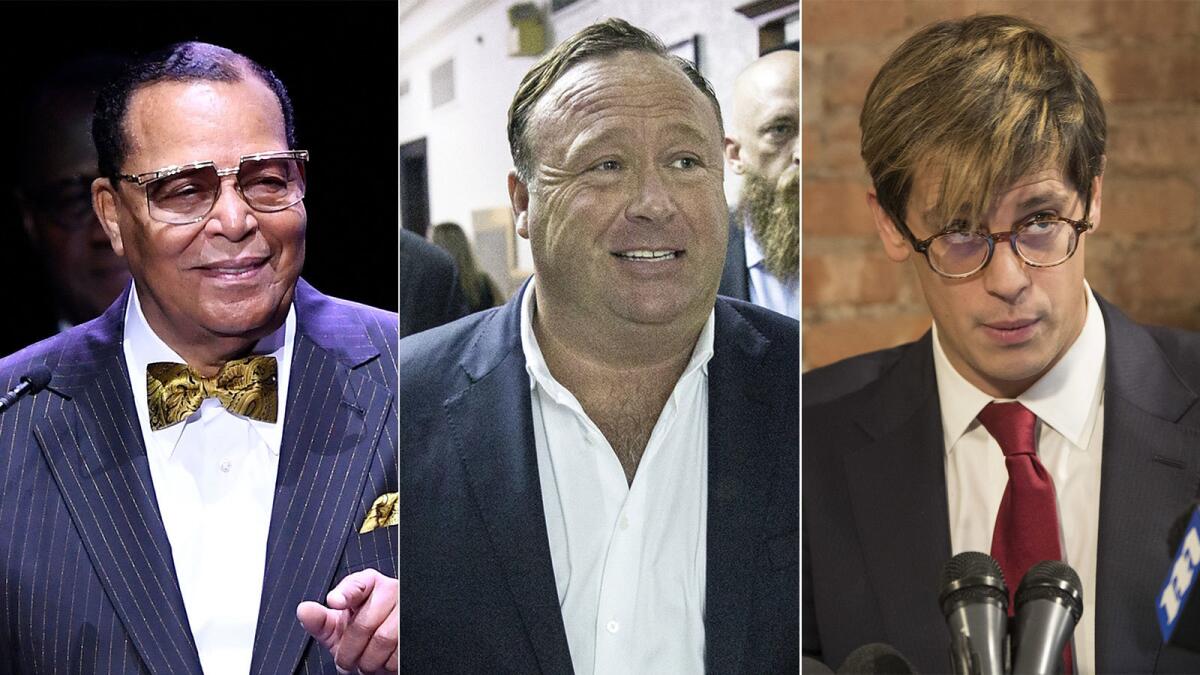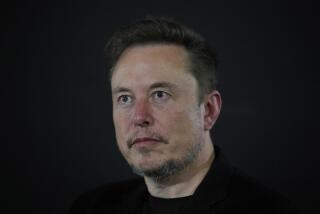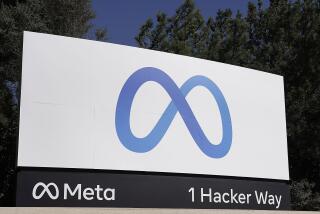Facebook bans Alex Jones and other controversial figures for hate speech

In the latest sign that social media giants are feeling the heat for allowing their platforms to amplify voices of extremists, Facebook on Thursday banned conspiracy theorist and InfoWars founder Alex Jones and the accounts of other controversial figures.
The company, citing violations of its policies on hate speech and promoting violence, is also blocking religious leader Louis Farrakhan, who is known for sharing anti-Semitic views; Paul Nehlen, a white nationalist who ran for Congress in 2018; far-right figures Milo Yiannopoulos and Laura Loomer; and conspiracy theorist Paul Joseph Watson. Those individuals and accounts that represent them are also banned from photo-sharing app Instagram, which Facebook owns.
For years Jones had used his Facebook channel to spread the idea that the Sandy Hook shooting, in which 20 children died, was a hoax. Jones followers took it upon themselves to harass the parents of murdered children. He’s being sued for defamation by 10 of those families.
“We’ve always banned individuals or organizations that promote or engage in violence and hate, regardless of ideology,” a Facebook representative said Thursday in a statement. “The process for evaluating potential violators is extensive and it is what led us to our decision to remove these accounts today.”
But the company’s enforcement of rules has long remained inconsistent. Just last July, Facebook tweeted, “We just don’t think banning Pages for sharing conspiracy theories or false news is the right way to go.” Then in August, Facebook took down four Jones-related pages, saying it did not take them down for spreading conspiracy theories, but rather for “glorifying violence.”
“They have rules, but enforcement is completely random,” said Roger McNamee, a high-profile Silicon Valley investor who has become a sharp critic of Facebook. “They don’t do anything about it until massive harm has been done and they can no longer find a dodge. Facebook is clearly feeling pressure.”
McNamee said Facebook’s business model depends on amplifying content that stimulates fear and outrage, and banning a few influential figures doesn’t change that. “It is sacrificing a handful of the most visible extreme voices in order to protect a much larger number of users it needs to maximize profits,” he said.
The Menlo Park, Calif., company didn’t say what specific posts or actions led to the bans, though a spokesperson said that Jones, Yiannopoulos and Loomer have all recently promoted Gavin McInnes, founder of the violence-prone far-right group the Proud Boys, whom Facebook banned in October.
“I think these are steps in the right direction that the company has been taking in terms of cleaning up the platform,” said Dan Ives, an equity analyst at Wedbush Securities.
Jones was temporarily suspended from Facebook last summer. His official fan page was also previously banned, though Jones was allowed to operate a personal account. Now that has been prohibited on Facebook’s sites as well.
Twitter permanently blocked InfoWars and Jones in September for violating its harassment policies. Yiannopoulos, the former editor of Breitbart News and a right-wing provocateur, and Loomer, a far-right activist who is also known for spreading conspiracy theories, have both previously been banned from Twitter Inc.’s social media service.
Facebook and other social media sites have long portrayed themselves as neutral platforms that are not responsible for what their users post, said Anthony Nadler, a professor at Ursinus College in Pennsylvania who researches how social networks and ad platforms can assist radicalization and spread disinformation.
“They’ve shied away from thinking of themselves as curators and publishers for a long time,” Nadler said.
After reports that international networks of propagandists used Facebook to spread disinformation that may have influenced the 2016 election, founder and Chief Executive Mark Zuckerberg dismissed the suggestion that the company should have taken action, maintaining that it should not become an “arbiter of the truth.”
But as criticism mounted of Facebook’s algorithms and business model, the company has been forced to backtrack and respond. In March, two weeks after a gunman went live on Facebook before marching into a mosque in Christchurch, New Zealand, and killing dozens, critics said a semantic loophole in its ban on white supremacy let racism blossom on its platform. Facebook subsequently banned content that references white nationalism and white separatism.
Meanwhile, Facebook, Twitter and other social media companies also have drawn fire from the right, on the claim that they suppress conservative opinion. In March, President Trump accused Facebook, Google and Twitter of “colluding” to stifle conservatives. Facebook denies its decisions are based on politics.
When it comes to dangerous individuals who promote hate speech or violence, Facebook can ban users for actions they take in the real world, or on other services, such as YouTube. Jones, who was banned from YouTube last year, hosted McInnes on his talk show late last year and promoted him on Instagram earlier this year. A Facebook spokesperson says Yiannopoulos and Loomer have also publicly promoted McInnes.
The news of the Facebook ban leaked out before the company had actually removed the controversial accounts. That gave Yiannopoulos a chance to notify his followers of the ban and promote his email newsletter, according to screenshots captured by BuzzFeed.
When Facebook bans an individual or organization, it typically also removes posts from other users who praise or support them. In this case, a Facebook spokesperson said that people will be able to post about or praise these banned users, though they won’t be allowed to share any of their views or opinions that Facebook considers hate speech or calls for violence.
“Our work against organized hate is ongoing,” Facebook said in the statement. “We will continue to review individuals, pages, groups and content against our community standards.”
Bloomberg contributed to this report.
Facebook shareholders are getting fed up with Zuckerberg but can’t do anything about him »
Facebook says settling FTC investigation could cost up to $5 billion »
A Facebook request: Write a code of tech ethics »







